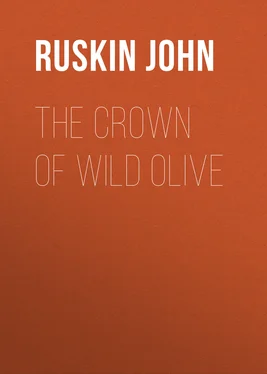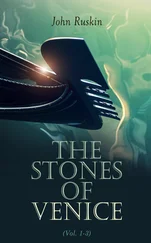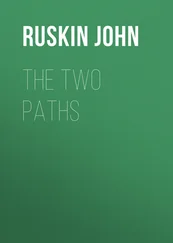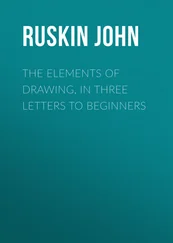John Ruskin - The Crown of Wild Olive
Здесь есть возможность читать онлайн «John Ruskin - The Crown of Wild Olive» — ознакомительный отрывок электронной книги совершенно бесплатно, а после прочтения отрывка купить полную версию. В некоторых случаях можно слушать аудио, скачать через торрент в формате fb2 и присутствует краткое содержание. Жанр: foreign_antique, foreign_home, literature_19, visual_arts, на английском языке. Описание произведения, (предисловие) а так же отзывы посетителей доступны на портале библиотеки ЛибКат.
- Название:The Crown of Wild Olive
- Автор:
- Жанр:
- Год:неизвестен
- ISBN:нет данных
- Рейтинг книги:4 / 5. Голосов: 1
-
Избранное:Добавить в избранное
- Отзывы:
-
Ваша оценка:
- 80
- 1
- 2
- 3
- 4
- 5
The Crown of Wild Olive: краткое содержание, описание и аннотация
Предлагаем к чтению аннотацию, описание, краткое содержание или предисловие (зависит от того, что написал сам автор книги «The Crown of Wild Olive»). Если вы не нашли необходимую информацию о книге — напишите в комментариях, мы постараемся отыскать её.
The Crown of Wild Olive — читать онлайн ознакомительный отрывок
Ниже представлен текст книги, разбитый по страницам. Система сохранения места последней прочитанной страницы, позволяет с удобством читать онлайн бесплатно книгу «The Crown of Wild Olive», без необходимости каждый раз заново искать на чём Вы остановились. Поставьте закладку, и сможете в любой момент перейти на страницу, на которой закончили чтение.
Интервал:
Закладка:
I have been long accustomed, as all men engaged in work of investigation must be, to hear my statements laughed at for years, before they are examined or believed; and I am generally content to wait the public's time. But it has not been without displeased surprise that I have found myself totally unable, as yet, by any repetition, or illustration, to force this plain thought into my readers' heads,—that the wealth of nations, as of men, consists in substance, not in ciphers; and that the real good of all work, and of all commerce, depends on the final worth of the thing you make, or get by it. This is a practical enough statement, one would think: but the English public has been so possessed by its modern school of economists with the notion that Business is always good, whether it be busy in mischief or in benefit; and that buying and selling are always salutary, whatever the intrinsic worth of what you buy or sell,—that it seems impossible to gain so much as a patient hearing for any inquiry respecting the substantial result of our eager modern labours. I have never felt more checked by the sense of this impossibility than in arranging the heads of the following three lectures, which, though delivered at considerable intervals of time, and in different places, were not prepared without reference to each other. Their connection would, however, have been made far more distinct, if I had not been prevented, by what I feel to be another great difficulty in addressing English audiences, from enforcing, with any decision, the common, and to me the most important, part of their subjects. I chiefly desired (as I have just said) to question my hearers—operatives, merchants, and soldiers, as to the ultimate meaning of the business they had in hand; and to know from them what they expected or intended their manufacture to come to, their selling to come to, and their killing to come to. That appeared the first point needing determination before I could speak to them with any real utility or effect. 'You craftsmen—salesmen—swordsmen,—do but tell me clearly what you want, then, if I can say anything to help you, I will; and if not, I will account to you as I best may for my inability.' But in order to put this question into any terms, one had first of all to face the difficulty just spoken of—to me for the present insuperable,—the difficulty of knowing whether to address one's audience as believing, or not believing, in any other world than this. For if you address any average modern English company as believing in an Eternal life, and endeavour to draw any conclusions, from this assumed belief, as to their present business, they will forthwith tell you that what you say is very beautiful, but it is not practical. If, on the contrary, you frankly address them as unbelievers in Eternal life, and try to draw any consequences from that unbelief,—they immediately hold you for an accursed person, and shake off the dust from their feet at you. And the more I thought over what I had got to say, the less I found I could say it, without some reference to this intangible or intractable part of the subject. It made all the difference, in asserting any principle of war, whether one assumed that a discharge of artillery would merely knead down a certain quantity of red clay into a level line, as in a brick field; or whether, out of every separately Christian-named portion of the ruinous heap, there went out, into the smoke and dead-fallen air of battle, some astonished condition of soul, unwillingly released. It made all the difference, in speaking of the possible range of commerce, whether one assumed that all bargains related only to visible property—or whether property, for the present invisible, but nevertheless real, was elsewhere purchasable on other terms. It made all the difference, in addressing a body of men subject to considerable hardship, and having to find some way out of it—whether one could confidentially say to them, 'My friends,—you have only to die, and all will be right;' or whether one had any secret misgiving that such advice was more blessed to him that gave, than to him that took it. And therefore the deliberate reader will find, throughout these lectures, a hesitation in driving points home, and a pausing short of conclusions which he will feel I would fain have come to; hesitation which arises wholly from this uncertainty of my hearers' temper. For I do not now speak, nor have I ever spoken, since the time of my first forward youth, in any proselyting temper, as desiring to persuade any one of what, in such matters, I thought myself; but, whomsoever I venture to address, I take for the time his creed as I find it; and endeavour to push it into such vital fruit as it seems capable of. Thus, it is a creed with a great part of the existing English people, that they are in possession of a book which tells them, straight from the lips of God all they ought to do, and need to know. I have read that book, with as much care as most of them, for some forty years; and am thankful that, on those who trust it, I can press its pleadings. My endeavour has been uniformly to make them trust it more deeply than they do; trust it, not in their own favourite verses only, but in the sum of all; trust it not as a fetish or talisman, which they are to be saved by daily repetitions of; but as a Captain's order, to be heard and obeyed at their peril. I was always encouraged by supposing my hearers to hold such belief. To these, if to any, I once had hope of addressing, with acceptance, words which insisted on the guilt of pride, and the futility of avarice; from these, if from any, I once expected ratification of a political economy, which asserted that the life was more than the meat, and the body than raiment; and these, it once seemed to me, I might ask without accusation or fanaticism, not merely in doctrine of the lips, but in the bestowal of their heart's treasure, to separate themselves from the crowd of whom it is written, 'After all these things do the Gentiles seek.'
Читать дальшеИнтервал:
Закладка:
Похожие книги на «The Crown of Wild Olive»
Представляем Вашему вниманию похожие книги на «The Crown of Wild Olive» списком для выбора. Мы отобрали схожую по названию и смыслу литературу в надежде предоставить читателям больше вариантов отыскать новые, интересные, ещё непрочитанные произведения.
Обсуждение, отзывы о книге «The Crown of Wild Olive» и просто собственные мнения читателей. Оставьте ваши комментарии, напишите, что Вы думаете о произведении, его смысле или главных героях. Укажите что конкретно понравилось, а что нет, и почему Вы так считаете.












